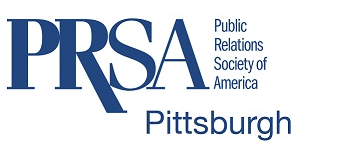Uncertain Times Call For Substantial Change
By Jesse Serra
Programming Co-Chair
Throughout history, it’s been proven time and again that controversy paired with bravery can lead to substantial change in society — consider the Women’s Suffrage Movement, the Stonewall Riots, the Civil Rights Movement, and, most recently, the Black Lives Matter Movement. Diversity and inclusion efforts have come to the forefront as a result of some of the world’s most recent tragedies. It’s time to make D&I not just conversation, but action, through efforts to ensure equal opportunities for all.
These thoughts and more were explored during PRSA Pittsburgh’s panel event, “Leadership Strategies to Cultivate a Diverse & Inclusive Environment,” featuring local D&I professionals:
- Paloma Denardis, Head of Inclusion & Diversity, DICK’S Sporting Goods;
- Malesia Dunn, Executive Director, PPG Foundation, Global Corporate Social Responsibility, PPG; and
- Tracey McCants Lewis, Deputy General Counsel and Director of HR, Pittsburgh Penguins.
Recognizing there is an unfortunate lack of support and prioritization for diversity and inclusion in the workforce, as well as in our communities, is the first step to initiating necessary conversations and change. Our panel of powerhouse women not only demonstrated passionate dedication to D&I efforts, but provided encouragement and actionable takeaways that we as professionals can implement immediately in both our personal and professional lives.
Throughout the lunch and learn panel discussion, a recognizable theme was change and improvement. How do we begin or better efforts that are already in place? It’s simple: action. We can no longer believe that ideas or wishful thinking is enough. It’s time to have difficult, transparent conversations that lead to implementing strategies, efforts, support teams and more. Action must take place in order to see change and to create the inclusive world we need. And it starts with each of us.
What can we do as individuals?
- Self-reflect. Are we each doing our part? Dunn posed that each of us should look in the mirror and ask ourselves: Who is included in our circle of peers and how we can expand it? Who or what are we most invested in, and are we working to incorporate diversity and inclusion in our day-to-day lives? What kinds of conversations are we having in our own homes and how can we expound on the importance of these matters?
- Be authentic and vulnerable. As we begin these conversations, which may be difficult or outside of our comfort zones, being honest and clear can encourage others to do the same. In being transparent and vulnerable, we inevitably create a safe place for others to join in with confidence. When we are able to let our guards down, we become more willing to relate to others and that is truly what our world needs.
- Be on the right side of history. Again, it is not enough to just be talking about change. Even when involving ourselves in conversation, words without actions to support them won’t change a thing. This is not simply a trend to follow, but the forming of our society’s future.
What can we do to improve the workplace?
“Maintaining transparency and being open and honest about current conversations is essential in the workplace,” urged panelist Malesia Dunn.
Ensuring current and potential employees feel safe, heard and represented begins with the recruitment process. It’s pertinent to ensure recruiters’ perceptions are unbiased and that parts of the process such as job descriptions and outreach platforms are reaching a wider pool of potential candidates. It also matters what happens after a new hire joins the team. Providing D&I resources and tools can help new hires feel welcome, as well as ensure that D&I efforts already in place will continue to be exercised as the talent pool grows.
Our panelists discussed key factors to ensure that the workplace is a safe environment, or a place where personnel feel secure, needed and in community with others. Based on each of their backgrounds and current D&I initiatives, they broke down three main components:
-
Development
When a new hire comes on board, what will they first encounter? Will their initial interactions be validating and helpful? Or based on prior biases? To hope for the best when a new hire comes through the door does not suffice. Nor for a newcomer who just moved to a city like Pittsburgh to immediately feel at home. For people to find their niche, connections become vital in growing roots and opening up opportunities. If organizations lack ample ways for employees to grow and develop in each of their positions and environments, efficiency and creativity will be greatly suppressed.
“If you want to get the most out of your people, the best thing you can do is to engage them and alleviate the burdens they are carrying,” explained panelist Paloma Denardis.
Helping employees become confident, strong-willed individuals can create the thriving culture your business needs led by personnel that readily and confidently execute.
-
Representation
When we see people like ourselves and find commonalities, we feel more secure and represented, thus reinforcing the need for diversity. Lewis and Dunn both spoke about the significance of being Black women in the workforce — and many times being the only Black person present in a meeting or working in a department.
“Seeing someone who looks like me draws me in and helps me feel represented,” Lewis said.
Ensuring team members represent marginalized groups is crucial to creating a welcoming environment for others as they seek employment, research organizations and businesses, and retain talent. As a woman, a minority, or someone with a disability, to see a person or people similar to you in the workplace creates an environment in which you are not an outlier.
-
Relationship
Recruiters, in particular, are faced with taking the initiative to meet people where they are, in order to minimize bias and ensure a strong D&I strategy is in place.
“Go out to the places your new hires are and place yourself in their communities and groups,” Lewis explained.
Reaching out beyond our normal circles, getting out of our comfort zones and engaging with professionals and colleagues who may not look the same as we do are all crucial. There’s a wealth of untapped talent in regards to underrepresented groups who have unparalleled knowledge, experience, creativity that would benefit any organization. Research and identify the best platforms to connect with these individuals, maintain these relationships and continue to grow these connections.
The gravity of current events and engagement in the Black Lives Matter movement is changing the trajectory of conversation and society. It’s time for action.
PRSA Pittsburgh recognizes that we must elevate the voices of those who are so often silenced. We are proud to stand by and support individuals of all races, genders, ethnicities, religions, sexual orientations and abilities. Our D&I committee is dedicated to doing our part in changing the narrative and creating a future in which all opportunities are equal.
Thank you to all who took part in this conversation and we encourage you to join in on further conversations and follow these resources.
Connect with the panelists, reach out to our D&I co-chairs, look to our industry leaders and make your mark on history by finding the purpose in hardship. Certainly, keep up with new D&I efforts within PRSA Pittsburgh and stay connected as we work to build sustainable environments for all.
Finally, extend your voices and let us know what more you need from us to ensure representation and inclusivity: info@prsa-pgh.org





Leave a Reply
Want to join the discussion?Feel free to contribute!